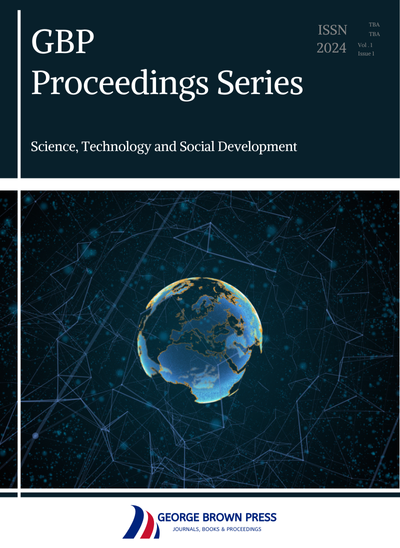The Role of English as a Global Language in Shaping Students' Worldviews
DOI:
https://doi.org/10.71222/x81xpe23Keywords:
global English, student worldviews, language and identity, intercultural awareness, English educationAbstract
As English continues to solidify its status as a global lingua franca, its influence extends far beyond communication, shaping cultural identity, value systems, and individuals' understanding of the world. This study investigates how learning and using English as a second language shapes the worldviews of university students in non-native English-speaking contexts. Drawing on data from surveys and in-depth interviews with 512 Chinese undergraduates, this study explores the cognitive, cultural, and emotional dimensions of English language acquisition. Findings indicate that English proficiency is positively correlated with students' openness to global perspectives, awareness of international issues, and perceived agency in cross-cultural communication. However, the study also reveals tensions between global integration and cultural displacement, as some students report feelings of identity fragmentation and alienation. The research highlights the dual role of English as both a tool for empowerment and a vector of cultural homogenization. These insights call for a more critically reflective approach to English language education that balances global competence with local cultural rootedness.
References
1. B. T. T. Nguyen, Cultural awareness and intercultural awareness in ELT practices from Global Englishes perspective in higher education in a Vietnamese university, Ph.D. dissertation, Univ. Southampton, 2023.
2. A. A. Salih and L. I. Omar, "Globalized English and users’ intercultural awareness: Implications for internationalization of higher education," Citiz. Soc. Econ. Educ., vol. 20, no. 3, pp. 181–196, 2021, doi: 10.1177/20471734211037660.
3. A. Cogo, "From global English to global Englishes," in Routledge Handb. Mater. Dev. Lang. Teach., London: Routledge, 2022, pp. 93–108. ISBN: 9781003262473.
4. N. Jindapitak, A. Teo, and K. Savski, "Bringing Global Englishes to the ELT classroom: English language learners’ reflec-tions," Asian Engl., vol. 24, no. 3, pp. 279–293, 2022, doi: 10.1080/13488678.2022.2033910.
5. A. Simpson, F. Dervin, and J. Tao, "Business English students’ multifaceted and contradictory perceptions of intercultural communication education (ICE) at a Chinese University," Int. J. Biling. Educ. Biling., vol. 25, no. 6, pp. 2041–2057, 2022, doi: 10.1080/13670050.2020.1840508.
6. A. V. Pavlovskaya, "National identity in international education: Revisiting problems of intercultural communication in the global world," TLC J., vol. 5, no. 1, pp. 20–36, 2021, doi: 10.22363/2521-442X-2021-5-1-20-36.
7. X. Wang, L. Jiang, F. Fang, and T. Elyas, "Toward critical intercultural literacy enhancement of university students in China from the perspective of English as a lingua franca," Sage Open, vol. 11, no. 2, 2021, doi: 10.1177/21582440211027544.
8. L. B. Hauerwas, S. N. Kerkhoff, and S. B. Schneider, "Glocality, reflexivity, interculturality, and worldmaking: A framework for critical global teaching," J. Res. Child. Educ., vol. 35, no. 2, pp. 185–199, 2021, doi: 10.1080/02568543.2021.1900714.
9. M. Shaw, "Worldview literacy as intercultural citizenship education: A framework for critical, reflexive engagement in plural democracy," Educ. Citiz. Soc. Justice, vol. 18, no. 2, pp. 197–213, 2023, doi: 10.1177/17461979211062125.
10. B. H. Nam, Y. Yang, and R. Draeger Jr., "Intercultural communication between Chinese college students and foreign teachers through the English corner at an elite language university in Shanghai," Int. J. Intercult. Relat., vol. 93, 2023, Art. no. 101776, doi: 10.1016/j.ijintrel.2023.101776.
11. E. Zalli, "Globalization and education: exploring the exchange of ideas, values, and traditions in promoting cultural under-standing and global citizenship," Interdiscip. J. Res. Dev., vol. 11, no. 1, pp. 55, 2024, doi: 10.56345/ijrdv11n1s109.
12. I. G. Kaçar, "A case study of Turkish pre-service teachers of English in an international exchange program: ELF and WE perspectives," Eurasian J. Appl. Linguist., vol. 7, no. 1, pp. 435–457, 2021, doi: 10.32601/ejal.911484.
13. L. Heng and H.-C. Yeh, "Interweaving local cultural knowledge with global competencies in one higher education course: an internationalisation perspective," Lang., Cult. Curric., vol. 35, no. 2, pp. 151–166, 2022, doi: 10.1080/07908318.2021.1958832.











